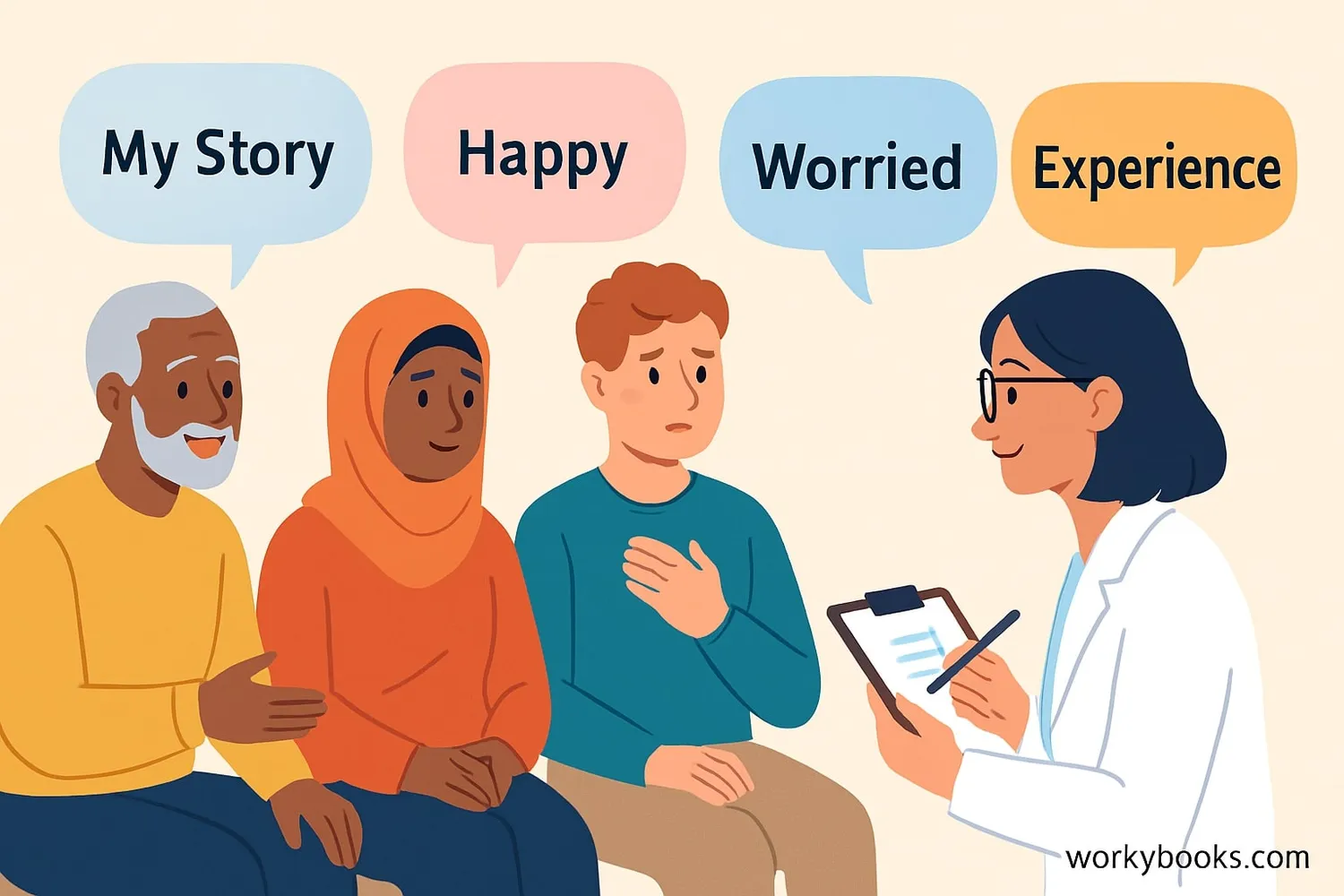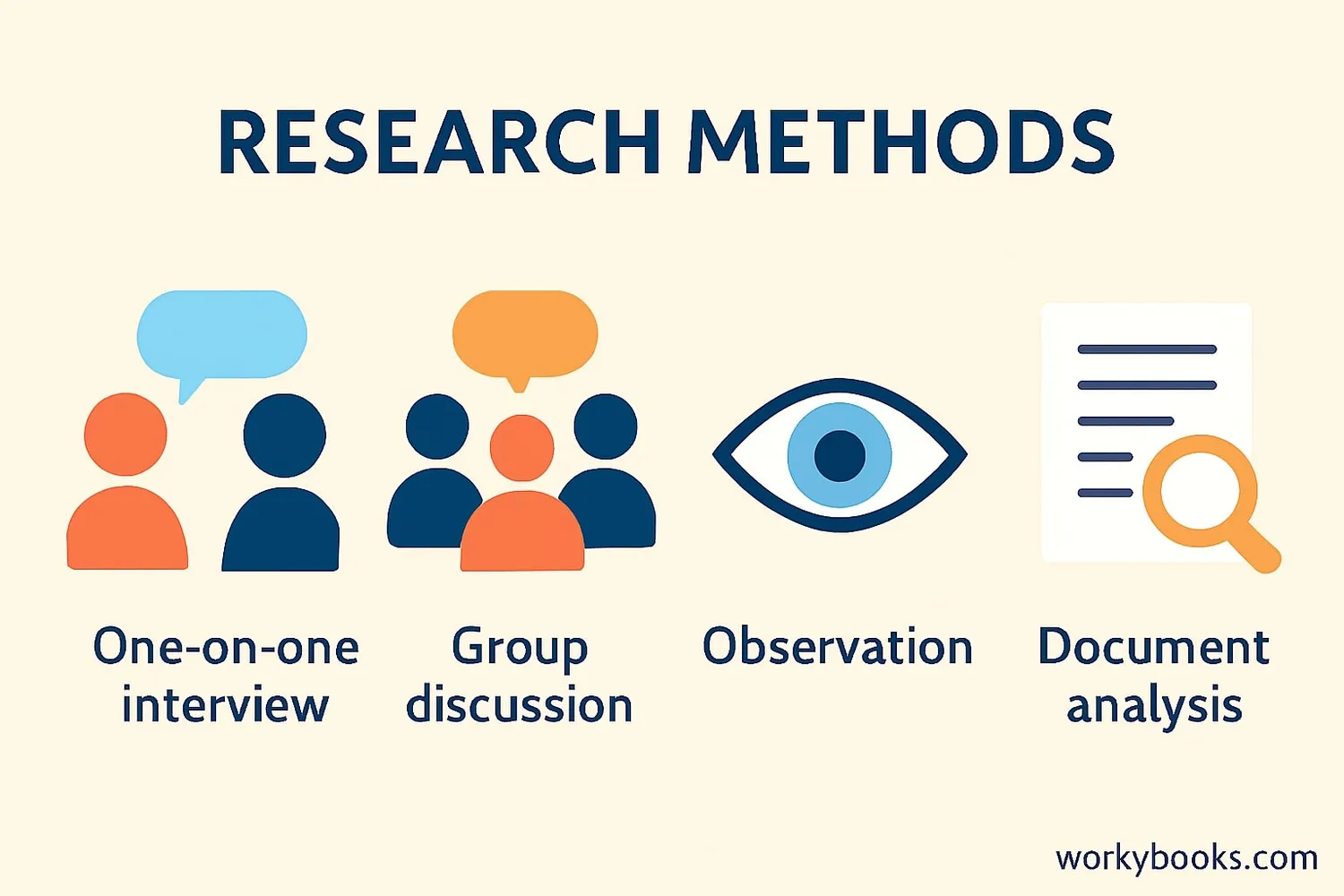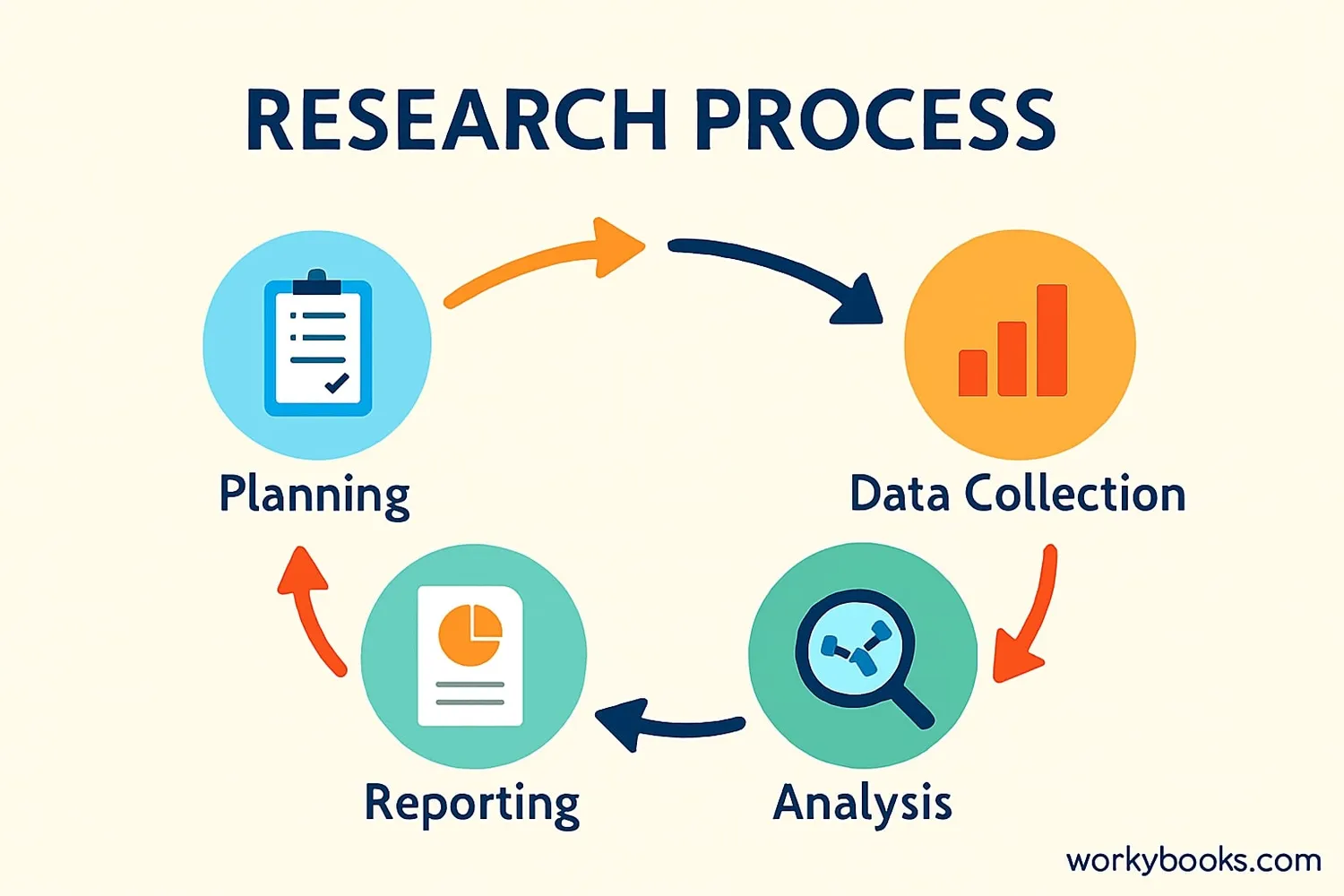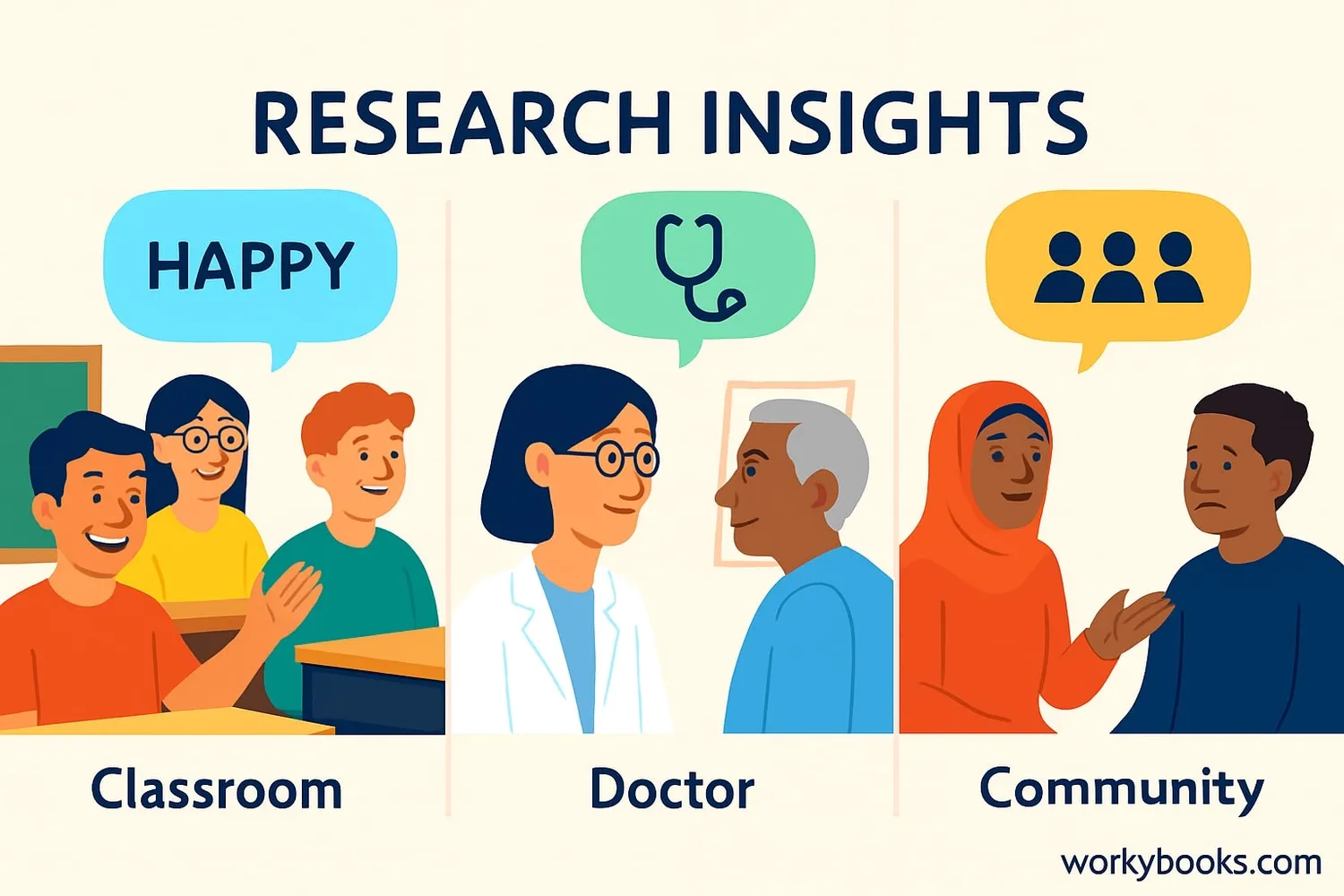Qualitative Research - Definition, Examples, Quiz, FAQ, Trivia
Discover how researchers explore people's thoughts, feelings, and experiences!
What is Qualitative Research?

Qualitative research is a way to understand how people think and feel about different things. Instead of counting numbers like in math, qualitative researchers collect stories, opinions, and experiences to learn about the world.
Think of it like being a detective for feelings and ideas! Researchers might ask questions like:
• How do students feel about school lunches?
• What makes a good friend?
• Why do some people enjoy reading?
Unlike quantitative research that focuses on numbers ("how many?"), qualitative research explores the "why" and "how" behind people's actions and thoughts.
Research Fact!
Qualitative research helps create better products, improve schools, and understand different cultures!
Qualitative Research Methods

Researchers use special tools called methods to collect information. Here are the most common qualitative research methods:
Interviews
One-on-one conversations where researchers ask open-ended questions
Focus Groups
Group discussions where people share ideas about a topic
Observations
Watching how people behave in real-life situations
Document Analysis
Studying diaries, letters, photos, or other personal items
Qualitative vs Quantitative
| Qualitative Research | Quantitative Research |
|---|---|
| Explores feelings and experiences | Measures amounts and quantities |
| Uses words and stories | Uses numbers and statistics |
| Asks "why" and "how" | Asks "how many" or "how much" |
| Smaller number of participants | Large number of participants |
| Example: "How do students feel about homework?" | Example: "What percentage of students complete homework?" |
The Qualitative Research Process

Qualitative research follows a careful process to make sure the findings are meaningful:
Planning
Choosing a topic and deciding how to study it
Data Collection
Gathering information through interviews, observations, etc.
Analysis
Looking for patterns and important ideas in the information
Reporting
Sharing what was learned through reports or presentations
During analysis, researchers:
• Read through all their notes and recordings
• Look for common themes and patterns
• Organize the information into meaningful groups
• Try to understand what it all means
This process helps turn lots of stories and conversations into useful knowledge!
Why Qualitative Research Matters

Qualitative research is important because it helps us understand the human side of things:
Improves Education
Helps teachers understand how students learn best
Better Healthcare
Helps doctors understand patient experiences
Community Understanding
Helps solve problems by listening to community members
Without qualitative research, we might know what people do, but not why they do it. This deeper understanding helps create:
• Better schools that meet students' needs
• More effective programs in communities
• Products that people actually want to use
• Policies that respect people's experiences
By listening carefully to people's stories, researchers help make the world a better place!
Qualitative Research Quiz
Test your research knowledge with this interactive quiz! Answer all 5 questions to see how much you've learned.
Frequently Asked Questions
Here are answers to common questions about qualitative research:
Fun Research Trivia
Discover some interesting facts about qualitative research!
Ancient Origins
Some of the earliest qualitative research comes from ancient historians like Herodotus (400 BC) who traveled and collected stories about different cultures!
Tech Revolution
Today, researchers use video calls to interview people worldwide and special software to help analyze thousands of interview pages in seconds!
Real-World Impact
Qualitative research helped design the original Emoji keyboard by studying how people communicate emotions in digital messages!
Space Research
NASA uses qualitative research to understand astronaut experiences during long space missions to prepare for journeys to Mars!





